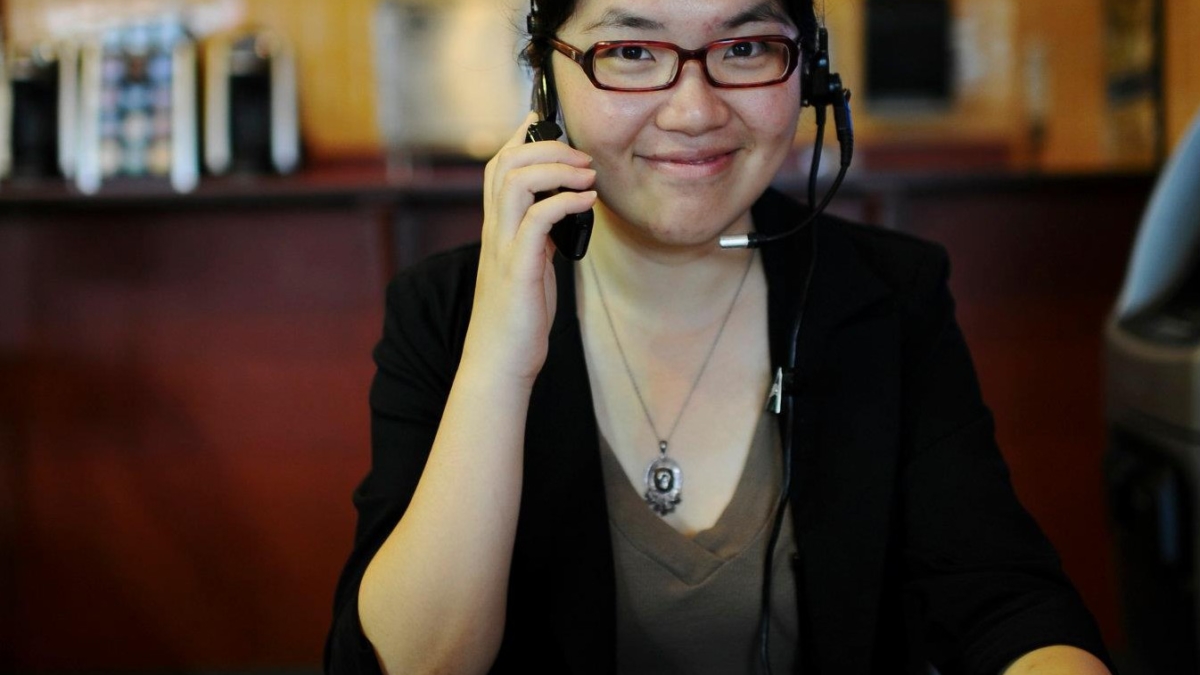
Asian CineVision welcomes Lesley Yiping Qin as the new program associate for AAIFF’13. She gave us some insights on her background with film in our recent interview.
Asian CineVision: What were your reasons to relocate from Shanghai to NYC?
Lesley Yiping Qin: As I was contemplating on pursuing graduate studies, I found out that film studies was an actual discipline in the west. I had been nurtured by the thriving DVD culture in China since high school, and discovering film studies opened up a whole new world to me. I was admitted to the master’s program of Cinema Studies at NYU, so I came to New York.
ACV: How influential is NYC to the film industry?
LYQ: Before I came here, NYC was always the symbol in Hollywood movies of fancy urban life and when I came to New York for the first time in high school on an exchange program, I got excited simply walking around Central Park, where a lot of movies were shot. But it is a different thing to live in NYC and to be exposed to diverse experiences.
It is also the paradise for film exhibition, because the curatorial idea gets their fair share of the spotlight and there is a sense of assurance that there will be an audience out there to appreciate something that could probably make it anywhere else.
ACV: Why movies?
LYQ: I love stories. I love visual arts. I am sensitive to sounds. I love to be in a place where I can observe, without saying a word, but still get an intensive sense of participation. Movie going literally meets all aspects of my passion and awkwardness.
ACV: Why is Asian CineVision important to you?
LYQ: There was a personal story to tell. In the summer of 2011, I was randomly searching a critically acclaimed Chinese film called THE PIANO IN A FACTORY, which was to be screened at AAIFF’11. I went to see the film, a year later – I became an intern at the festival, and now I have officially begun to work here. What attracted me most about Asian CineVision is that it is a flexible organization that is able to tackle ethnic issues, pop culture, arts and social justice at the same time and it is constantly expanding onto new forefronts. It is the festival that cares about emerging filmmakers as a way to understand where people are coming from, especially being located in this city of made up of immigrants. ACV has kept this spirit so far for 36 years.
ACV: What is the current state of Chinese cinema?
LYQ: Uhh you don’t really want to ask me that. Simply put, the political censorship makes it run on a dual system. The commercial and state approved cinema is apparently thriving and it hit a record 17 billion RMB for the annual revenue in 2012 – although ironically the daily transaction value on the No.1 online shopping website in China had once amounted to 19 billion in a single day. For the past decade, it has transitioned from a period of blockbusters, kong fu or war drama made by big-shot directors to an increasing number of modest-budget genre films. Co-production is also increasing between China, – primarily US and many times South Korea, which also boosts investment in the film infrastructure. But again, we need to wait and see if it brings genuine creativity or just copycats that bank on the financial security of certain genres.
On another note, the independent (first and foremost in the political sense of the word) cinema is also booming due to the increasing accessibility of video cameras. This is a dynamic arena that produces not only a substantial volume of works, but also productive debates about the state of art, politics, history and memories and filmmaking ethics. And then there is a third area, where the two strands overlap – state-approved yet commercially low-profile, partially following the “6th generation” “underground” directors who turned “above ground” in 2003. These are both documentaries and narrative films that take the advantage of being politically ambiguous but have antithetical aesthetics to the mainstream.
ACV: What is the future for Asian American cinema?
LYQ: I still need to learn more about it. From where I came from, Ang Lee and Joan Chen are pretty much all about Asian American cinema and they were recognized because of their apparent connections to their cultural roots and mother tongue. But Asian American cinema itself is far more diversified, generationally and ethnically. But speaking of the future, I will bet on more co-productions by American born Asians who actively return to and engage in their cultural roots- like SHANGHAI CALLING, the opening film of AAIFF’12, which on both production and cultural levels inhabits its Chinese-ness and American-ness.
ACV: Filmmakers and actors/actresses we should look out for and why?
LYQ: I don’t know if I can name any one of the Chinese-speaking directors because they are all of some interest to me. But Jia Zhangke is a wonderful essayist, and I wish I could translate his essays one day. There is one director who I like so much that I adore every single one of his films – Korean director Lee Chang-dong. He is always able to offer glimpses of salvation in the immense existential despair and sadness depicted in the films.
ACV: What are your thoughts on AAIFF’13 submissions thus far?
LYQ: There are a lot of great features in production. This year I have the privilege of working with a world-class programming group Somi Roy and La Francis Hui. The screeners I have seen are all excellent—there is so much talent to chose from. It makes me melancholic to realize that we have to say no to a lot of them. I also love the shorts we’ve got. They give you a tangible picture of the future of A/P/A cinema.

